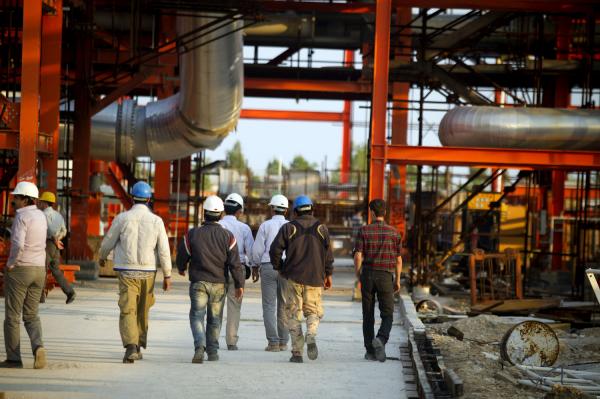
Though a labor strike in Kuwait is on its third day, a spokesman for the oil ministry said Tuesday output has moved higher to 1.5 million barrels per day.
Talal al-Khaled, a spokesman for the oil ministry, said Tuesday oil facilities in the country were producing an average rate of 1.5 million bpd, about 45 percent below the national average output for March.
Production was off roughly 60 percent to 1.1 million bpd after laborers Sundaystarted striking in protest of proposed austerity measures considered by the Kuwaiti government in response to lower crude oil prices. The strike coincided with the collapse of a meeting in Doha among major oil states, including Kuwait, to review a proposal to hold production at January levels.
Kuwait in January produced about 2.7 million bpd on average, according to the latest figures from the Organization of Petroleum Exporting Countries.
A decline in crude oil prices has pressured economies like Kuwait’s that rely heavily on fossil fuels for revenue. Emirati Finance Minister Obaid Humaid al-Tayer, speaking on behalf of a regional consortium last week, warned of the lingering economic risks.
“We are still facing a tepid and fragile global recovery with heightened uncertainty and increasing financial turbulence,” he said during a speech in Washington.
Exporting nations, he added, are facing “unprecedented” financial pressures from the drop in crude oil prices.
Oil companies in Kuwait had cut wages in an effort to streamline capital during the oil market downturn, following trends set by peer companies across the globe that are reducing their headcounts. Acting Oil Minister Anas al-Saleh said Monday petroleum sector employees were called to return to their work stations following pledges that salaries and benefits would be untouched.
The government said Monday, meanwhile, there would be no tolerance for a protracted strike, saying the labor stoppage presented a threat to state interests.
The International Monetary Fund in December said inflation would remain relatively stable over the medium term, though the decline in oil prices was having an adverse affect on Kuwait’s finances.
[SOURCE:- UPI]




